**********************************************************************
Nigeria has a history of military interventions in the West African subregion. If not for the current geopolitical climate, Nigeria's latest intervention would have largely passed unnoticed by many commentators outside the subregion—just as happened when Nigeria intervened in Liberia (1990, 2003), Sierra Leone (1997), Guinea-Bissau (1999, 2012, 2022) and Gambia (2017).
**********************************************************************
PREAMBLE:
One of the biggest blind spots of certain “anti-imperialist” commentators in the alternative media space is the utter lack of nuance when discussing African affairs.
African states are often seen only as hapless vessels, the passive subjects of continuous jostling of foreign powers for influence—France, USA, Russia, China, UK. The Africans always have to pick a side. They are either with the “good guys” (China and Russia) or they are with the “bad guys” (USA, France, UK).
There is never an attempt to try to understand that even within Africa, some states are bigger and more advanced than others. And those advanced states have huge regional interests that need protecting.
In 1998, South Africa intervened militarily in neighbouring Kingdom of Lesotho to restore order after mass riots broke out and the armed forces of the small kingdom mutinied. In 2014, there was a coup d'état in the same Lesotho. South Africa threatened to intervene, but ultimately didn't because the coupists fled ahead of the planned intervention, leaving the South African police to escort exiled officials of the overthrown royalist government back to their country to reclaim political power. Why did South Africa act in this way? The answer is— regional security in the larger Southern African region is a core national interest of post-apartheid South Africa.
I. THE TANZANIAN EXAMPLE:
Tanzania invaded Uganda in 1978, sparking the Uganda-Tanzania War (1978-1979) which got rid of the Idi Amin regime and restored the overthrown Ugandan President Milton Obote back to power.
Idi Amin was an enemy of UK and so one could be tempted to conclude that Tanzania was doing the bidding of the British. But such would be the conclusion of a person who is clueless of the situation in the East African subregion at the time.
At that time, there was a steady stream of Ugandan refugees fleeing Idi Amin’s cruel dictatorship. Those refugees flooded neighbouring Tanzania, creating a humanitarian crisis. To make matters worse, the Ugandan military dictator Idi Amin had invaded and occupied Kagera— a Tanzanian border region, which Idi Amin said was Ugandan territory.
Regardless of how you cut it, Tanzania acted in its national interest, not that of USA, Israel or UK. Socialist Julius Nyerere was not even close to UK. He had actually spent a large part of his adult life in the anti-colonial struggle in British-ruled East Africa.
Of course, that did not stop Idi Amin regime from portraying Julius Nyerere as a British puppet, thus persuading a youthful Colonel Gaddafi to send Libyan expeditionary troops to Uganda. Yasser Arafat even sent Palestinian Liberation Organization (PLO) fighters to Uganda to defend against the invading Tanzanian Army.
II. NIGERIAN CREATION OF ECOWAS:
Nigeria is the regional powerhouse of West Africa. One of the few in Africa that has a formidable army, air force and navy. Despite relying heavily on Russia and China for military equipment, Nigerian Army does make some lightly armoured vehicles. Nigerian Airforce makes small drones. And the Nigerian Navy makes some of their own patrol boats.
I posted a video on this platform discussing naval ship building in Nigeria, a couple of months ago:
Since the end of the Civil War (1967-1970), during which Eastern Nigeria tried and failed to break away as the Republic of Biafra, the victorious post-war Nigerian Federal State has enjoyed a windfall in petroleum profits. That funded a 1970s construction boom within Nigeria and some of the money was circulated to poorer countries in the West African subregion to buy goodwill. It didn't take long for Nigeria to create ECOWAS in 1975 to solidify its hegemonic hold on the subregion.
During the Cold War, Nigeria set its sights even higher. It gave scholarships and diplomatic papers to black South Africans fleeing the apartheid regime. The apartheid regime did not recognize black South Africans as citizens and so refused them passports. Nigeria along with other African states issued travel documents and, sometimes, granted citizenships and passports.
Nigeria also gave weapons to the Namibians and Zimbabweans, though not on the gigantic scale of China and USSR. Former South African President Thabo Mbeki lived in Lagos City in the 1970s as an exiled anti-apartheid activist at Nigerian government expense. Exiled ANC activists in Nigeria enjoyed similar perks and their children did not pay school fees while Nigerian citizens had to pay for their children's education.
Meanwhile, back in West Africa, under Nigerian guidance, ECOWAS evolved from a purely economic organization to one with a mission of greater regional integration in the political, educational and cultural spheres.
Free movement and ability to gain residency across all ECOWAS member-states has since been instituted. So a Ghanaian can enter Nigeria without visa and vice-versa. A pipeline network supplying Nigerian natural gas to some ECOWAS states does exist. So are international road networks connecting these member-states to each other, courtesy of Chinese construction companies.
There are even plans in the works by ECOWAS to replace the CFA Franc used by some of its Francophone member states with a new regional currency to be called Eco.
III NIGERIA AND REGIONAL SECURITY
Nigerian security and military establishment have always been worried about border security as far back as the 1970s, 1980s and early 1990s. Back then, the fear was either heavily armed bandits or Tuareg secessionist fighters from Niger Republic violating the 1,600-kilometre international border shared with Nigeria. The Nigerian government also had similar concerns about a successive series of civil wars raging in Chad, which could spill over to Nigeria. The involvement of Gaddafi’s Libyan troops in some of these Chadian civil wars was also a constant source of concern in Nigeria.
Even far from its borders, Nigeria always worried about regional security in West Africa and that caused it to intervene in several conflicts— Liberia (1990, 2003); Sierra Leone (1997); Guinea-Bissau (1999, 2012, 2022); Gambia (2017).
Jihadist insurgency first became a serious regional issue in the late 1990s as a fallout of the Algerian Civil War (1992-2002). Jihadist insurgents kicked out of Algeria simply decamped to the Northern parts of Mali and operated there.
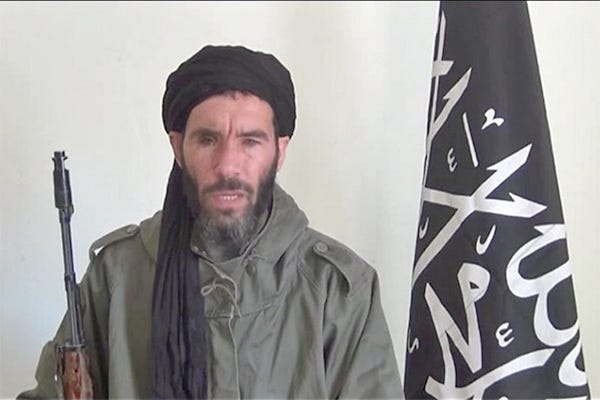
But what really turbocharged the insurgency was NATO's destruction of Libya's statehood. NATO weapons air-dropped to Libyan jihadists contributed to the defeat and overthrow of Gaddafi's government in October 2011. As soon as that was achieved, the weapons moved in two directions. One directional stream saw those weapons move from Libya to Algeria and then to Mali and Burkina Faso. The other stream saw some weapons cross into Niger and then to the north-eastern part of Nigeria where it revived a dying Boko Haram. Boko Haram’s firepower grew so powerful that the Nigerian Police could no longer combat the terror group. So, the Nigerian armed forces were brought in as a replacement.

The nightmare scenario for Nigeria’s security services and military establishment is jihadists overrunning the extremely long Niger-Nigeria border and penetrating deep into the country of 200 million citizens. As a result of this fear, Nigeria has unashamedly used various organizations it created or co-founded as tools for its national security interests.
(a) Multinational Joint Task Force (MJTF):
In 1994, Nigeria created a task force exclusively from its own army to tackle cross-border security issues. In 1998, Nigeria invited neighbouring Niger, Benin, Cameroon and Chad to join that security task force and that was how the multinational military force was born.

(b) Lake Chad Basin Commission (LCBC):
The destruction of Libya unleashed a jihadist insurgency wave across the West African part of the Sahel Belt and in the overlapping Lake Chad Basin Area. This caused Nigeria to use the Lake Chad Basin Commission which it funds and controls to urge stricter enforcement of border security.

Algeria, Libya, Cameroon, Chad, Niger, Central African Republic, Sudan and Nigeria are the 8 members of the Lake Chad Basin Commission.
I wrote an article last year discussing a Lake Chad Basin Commission meeting summoned by the (now retired) Nigerian President Buhari to discuss an intelligence report by three Nigerian security agencies (NIA, SSS, DIA) analysing the prospect of NATO weapons in Ukraine finding their way into the Lake Chad Basin Area.
The widely-read Nigerian newspaper, Punch, also reported on that Lake Chad Basin Commission meeting in November 2022.
(c) Bilateral Relations Between Nigeria and Niger Republic
Nigeria applies ECOWAS, Lake Chad Basin Commission and the Multinational Joint Task Force as instruments for securing its national interests. These different organizations give Nigeria a forum for discussing border security with 16 West African States, 2 North African states and 4 Central African countries.
But Nigeria also uses one-on-one bilateral relations as an instrument as well. Bilateral relations between Nigeria and Niger revolves around security.
Niger is extremely poor, even by regional standards. So Nigeria supplies truckloads of grain, monetary grants and some free electricity to Niger. This move is very unpopular among Nigerians because Nigeria itself is not self-sufficient in food production. And Nigerian citizens are obliged to pay their electric bills even during periods of rolling blackouts.
Niger reciprocates Nigeria’s goodwill by cooperating on border security as a member of all three Nigerian-dominated organizations— Lake Chad Basin Commission, Multinational Joint Task Force and ECOWAS.
The task force has made progress over the years. It has beat back the jihadist terrorists and kept them confined to the northernmost periphery of Nigeria, the desert and sparsely populated areas of the country, remote from well-populated rural and urban areas.
Any coup d'état in Niger Republic is treated in Nigeria as a loud wailing fire alarm. There is a good reason why Nigeria refused to intervene when military coups took place in Mali and Burkina Faso despite US pressure, but is now revving to jump headlong into Niger Republic and reverse the coup before it degenerates into the usual vicious cycle of one coup after another coup after another coup as is typical in that poor arid country.
Nigeria cannot afford to allow itself to become like Central Africa Republic (CAR) where Islamic insurgents captured 75% of the country and slaughtered citizens, forcing its leaders to beg French President Hollande to intervene in January 2013.
France had closed its sole military base in CAR back in 1998. And so, it was not easy to intervene. Before Hollande could mobilize French troops from metropolitan France and its overseas military bases in Gabon, the Islamists sacked the capital city of Bangui, forcing the then CAR President Francois Bozize to abandon his post and flee the country on 15 March 2013.
French interventionist troops arrived in December 2013, but achieved little. In October 2016, President Hollande declared victory and pulled out his troops, abandoning CAR to its fate.
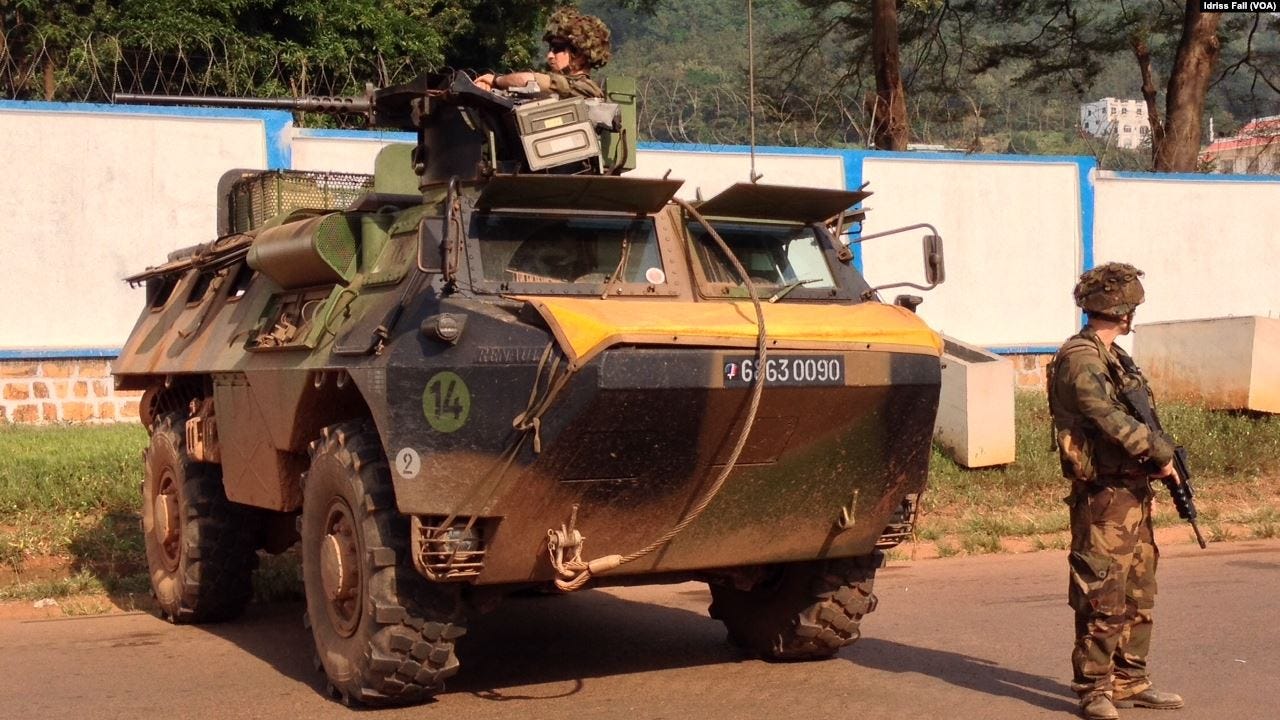
The newly elected President Faustin-Archange Toudera had to beg Putin to increase the then paltry five-man team of military advisers drawn from the regular Russian Army. Putin then recommended Prigozhin and CAR government signed a contract with him. Wagner deployed in March 2018 and still remains an effective counterinsurgency force out there.
For more details about Wagner’s operations in Africa, please read :
WAGNER GROUP, THE RUSSIAN STATE AND AFRICA: THE PAST, THE PRESENT AND THE (POSSIBLE) FUTURE
**Important Note To New Readers: This author always write in British (Commonwealth) English and his spellings reflect that fact**
Unlike Central Africa Republic, Nigeria has a proper army, navy and air force, but that does not stop them from worrying about the nightmare scenario of political chaos in Niger Republic and the overrunning of the border by jihadist hordes.
In addition to potential infighting among elements of the post-coup military junta, history suggests that the removal of the Niger President Mohammed Bazoum could lead to a potential civil war down the line.
Bazoum is a member of the Diffa Arab ethnic group, one of several minorities that have faced historic discrimination. Minorities in the historically restive northern region of Niger has previously fought a low-intensity separatist conflict with the Niger government in the 1980s and 1990s.
Bazoum is the first Diffa Arab minority to be elected President. The man who overthrew him is an ethnic Hausa from Southwest Niger, which have historically dominated power in that poor arid country. I note that many of the supporters of the coup are from the South. I am aware that Northerners demonstrated against the coup, but police dispersed them with tear gas.
IV GEOPOLITICS OF THE NIGER COUP
I have already stated that ECOWAS did not go into Mali or Burkina Faso when their own coup d'états happened because Nigeria did not feel its own national security in danger.
Neither Mali nor Burkina Faso shares a border with Nigeria. So, it was a no-brainer that ECOWAS was never going to do anything beyond suspending membership rights, applying some lame sanctions and issuing a stern statement condemning the “destruction of democracy”.
Overt American pressure and some covert UK pressure did not change Nigeria’s stance on the issue of military intervention in Mali and Burkina Faso.
Saying “no” to powerful foreign states is not something new. Back in 2012, US President Obama lobbied Nigeria to send troops to Somalia to fight Al Shabaab terrorists, Nigerian government declined.
Nigerian leaders may be corrupt, but they are not stupid. They won't enter military adventures fraught with high risks unless they felt the Nigerian Federal State—from which they earn their living—was facing security threats.
Let me address the current disposition of Algeria, Mali and Burkina Faso...
It is false that Algeria vowed to fight on behalf of Niger. Algeria has condemned the Niger coup d'état, but favours a peaceful settlement of the crisis instead of Nigerian/ECOWAS military intervention.
Mali and Burkina Faso have "toy armies" and therefore can't act on their threats to intervene on the side of the military junta in Niger. Neither Mali nor Burkina Faso even patrol their own borders or have the capacity to do so. In the absence of competent national militaries, Wagner mercenaries are the ones staving off the jihadist onslaught on behalf of both countries. Surely, nobody thinks that Prigozhin's men would be asked to face Nigerian Armed Forces. Kremlin would probably dissolve Wagner before it allows that to happen.
There is a good reason why Russia has mostly been silent on this particular coup and have only issued a tepid statement stating that "constitutional order should be restored in Niger." The Kremlin has read the mood in Nigeria and understood it well.
The Russian ambassador in the Nigerian capital city of Abuja, Mr. Alexey Shebarshin, echoed Kremlin’s line that the Niger coup is “anti-constitutional”, but added that Russia wanted the Niger crisis to be resolved peacefully without any Nigerian/ECOWAS intervention. More importantly he said, Russia has no plans to help the new military junta in Niger.
I guess that pretty much lines up with my analysis that the Kremlin has no interest in putting Russia on a diplomatic collision course with Nigeria.
Now, let me address the role of the NATO countries…
Yes, USA, UK, EU and France are goading Nigeria to intervene, but they are already preaching to the choir. Even if all four were against intervention, Nigeria may still do it.
It is not even the newly elected Tinubu that is driving this affair. It is the entrenched security services and military establishment in Nigeria that are pressuring Tinubu to intervene. The NATO states are merely adding their voices of support to something that is already a forgone conclusion.
They failed to get Nigeria to intervene in Mali and Burkina Faso. But this time around, they are confident that Nigeria will go into Niger. The NATO states are fully aware of the complex web of interests, which sees their own global-spanning desires converging with Nigeria's obsession with regional security, especially at its jihadi-prone northern borders.
Despite US pressure on Nigeria to immediately press on with military intervention, President Bola Tinubu has been looking to see if this matter can be peacefully resolved.
Firstly, he sent emissaries to brief Algeria on Nigeria’s intentions. Algeria cooperates with Nigeria on border security through the Lake Chad Basin Commission. Both countries are also building the cross-continental Nigeria-Algeria (Trans-Sahara) Gas pipeline as I reported in a July 2022 article:
EU GOES TO NIGERIA FOR NATURAL GAS
Since the 1970s, successive Nigerian governments have always harboured ambitions of supplying gas to Europe via an onshore-offshore pipeline running from Warri city in Midwestern Nigeria through Niger Republic and Algeria to Spain and Italy. This ambitious project was known as Trans-Saharan gas Pipeline (TSGP) or The Nigeria-Algeria (NIGAL) Pipeline pro…
Secondly, at the behest of President Tinubu, the former Nigerian Head of State Abdulsalami Abubakar and Sultan of Sokoto Muhammad Sa'ad Abubakar III were sent to hold peace talks with new military junta in Niger. Gambian diplomat, Omar Alieu Touray, who is the current President of ECOWAS Commission, accompanied the two Nigerian emissaries to the meeting.
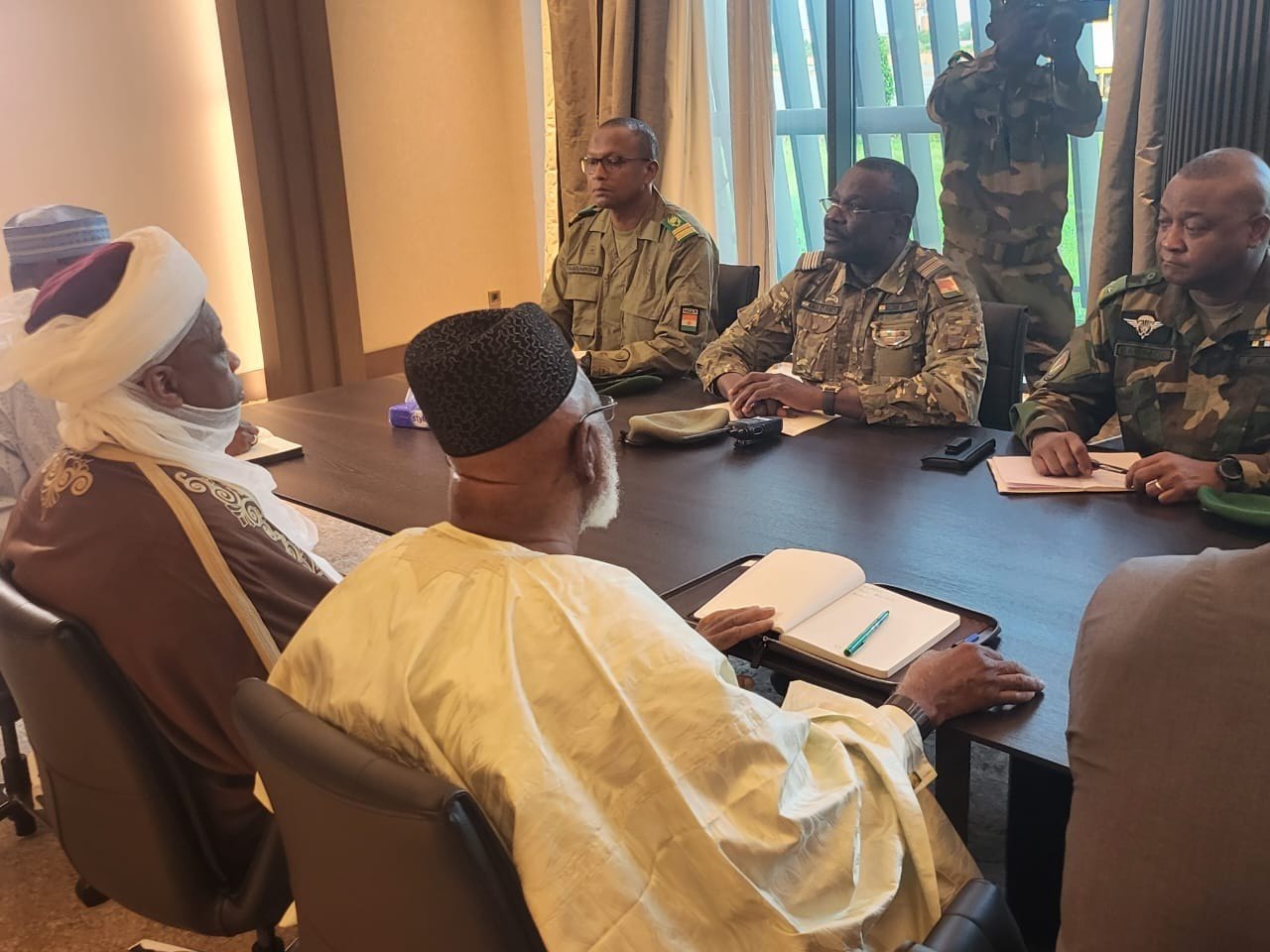
So why did Tinubu send those two Nigerians to Niger? Well, because both of them share the same Hausa ethnicity as most of the coup leaders in Niger.
Sultan of Sokoto Muhammad Sa'ad Abubakar III is the most respected traditional ruler in Hausa-speaking Northern Nigeria and Southern Niger. In pre-colonial times, his ancestors—as Caliphs—ran an independent Sunni Muslim state called the Sokoto Caliphate from 1804 until its subjugation and annexation in 1903 by the British colonial regime.
Abdulsalami Abubakar was the last military ruler of Nigeria. After the sudden death of the extremely cruel Nigerian dictator, General Sani Abacha, on 8 June 1998, the mild-mannered General Abdulsalami Abubakar stepped in as provisional Head of State and organized the 1999 elections that restored elective constitutional government back to Nigeria after an absence of over a decade.
Since retiring from the Nigerian Army, Abdulsalami has gone into the world of conflict resolution, travelling to various hot spots across the African continent as a peace mediator on behalf of various organizations—the African Union, ECOWAS, United Nations and Commonwealth of Nations.
Just like the Sultan of Sokoto, the retired army general can communicate directly with the military junta leaders of Niger Republic in their common native language of Hausa.
So what are the chances that this imbroglio will be settled peacefully? Almost none.
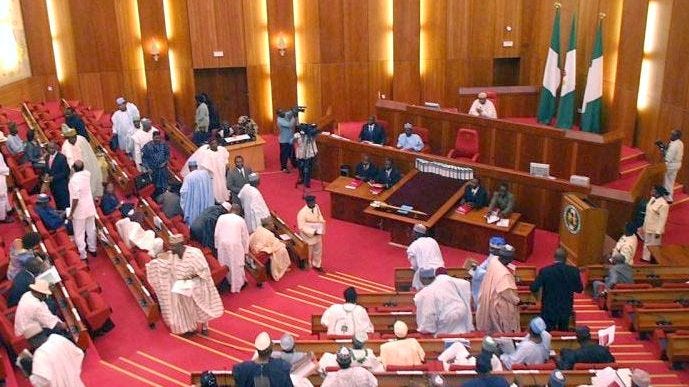
Nigeria’s attempt at peaceful resolution has hit the rocks because Niger military junta just blocked Nigerian members of the Multinational Joint Task Force from operating in certain border areas where the territories of both countries overlap. The Nigerian Ambassador to Niger has been declared persona non grata.
And more importantly, the Niger military junta disrespected the Nigerian emissaries sent to resolve the crisis peacefully. Therefore, President Tinubu has gone to the Nigerian Senate to ask for permission to begin the military intervention.
In the meantime, Nigerian Airforce have been authorized to prepare to cross into Niger airspace at a moment's notice. Nigerian Army is massing troops at the border.
THE END
Dear reader, if you like my work and feel like making a small donation, then kindly make for my Digital Tip Jar at Buy Me A Coffee

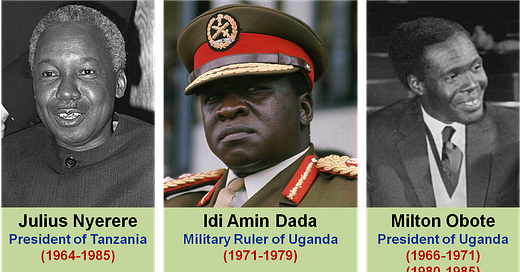







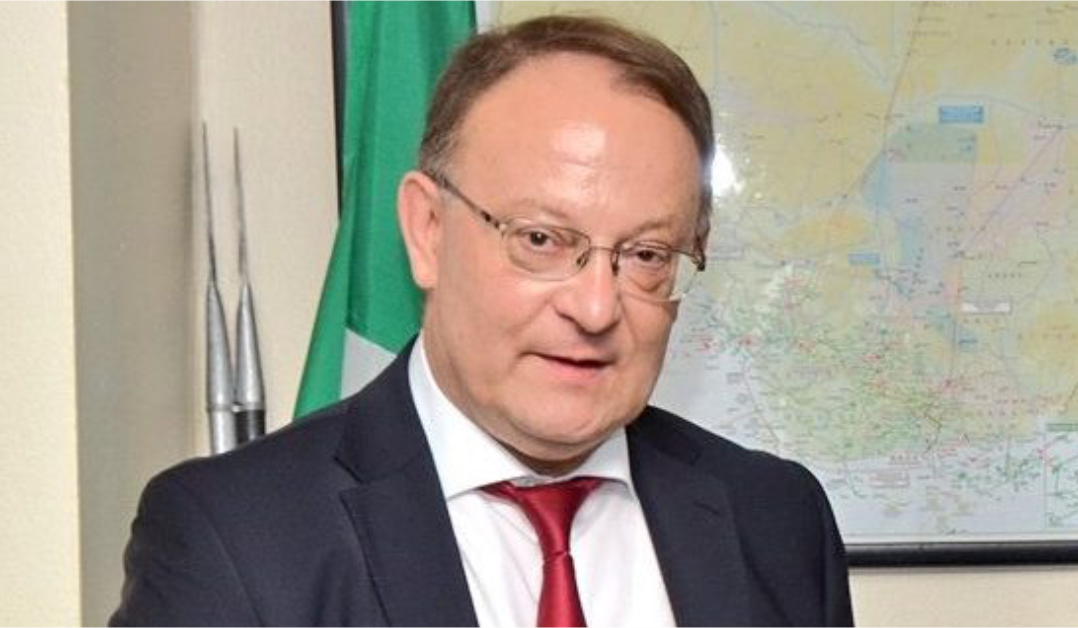


This is very informative. Thank you!